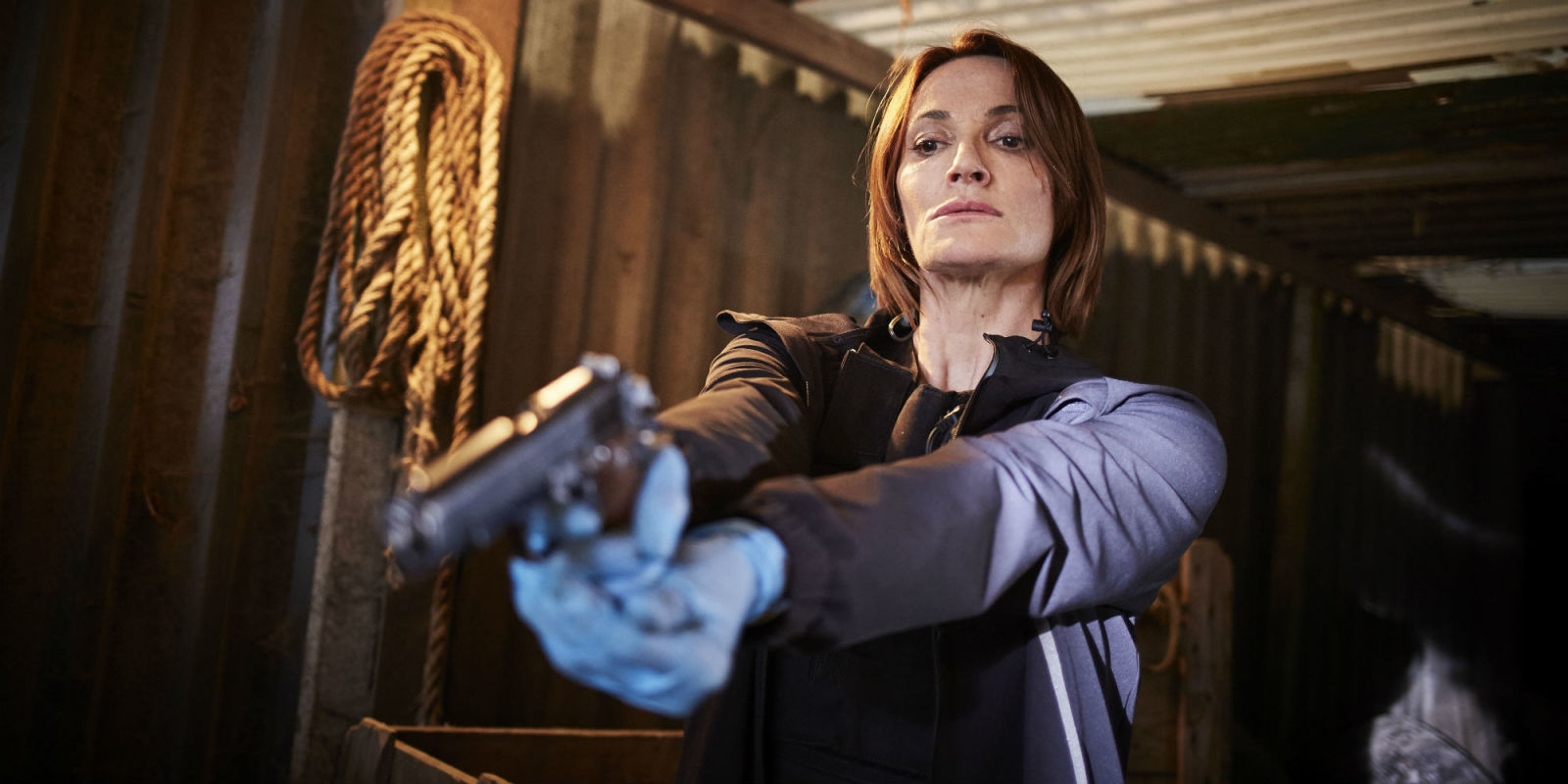 ★★★½
★★★½
“The thin grey line.”
When young detective Katherine Stevens (Marsay) gets assigned a batch of cold cases by her boss, Clifford Walker (Edmondson), it seems a task of little interest. The batch includes the brutal stabbing murder of a young woman, 27 years previously – coincidentally, the first cop on the scene, Elizabeth Bancroft (Parish), is now a senior officer. Indeed, she’s competing with Walker for the job of soon-to-retire Detective Chief Superintendent, and bringing down local crime boss Athif Kamara would all but guarantee her the job. So, nothing will be allowed to stand in Bancroft’s way. Not Walker, and certainly not a rookie detective, poking her nose into cases which should stay closed. Because three decades of forensic advances mean that the murder Stevens has re-opened may no longer be quite as insoluble as it was…
The fact that the show’s title is Bancroft, and not “Stevens”, tells you where the focus is here, on the villainess – or, you could perhaps argue, anti-heroine. Perhaps the closest comparable show I can think of is Dexter, particularly in that both shows have a central character who hides their true nature in the police force. In Bancroft’s case, the murderous tendencies have also been very deeply buried; however, it comes out again when her position is threatened by Stevens’s investigation. Yet there’s plenty of evidence of her generally “flexible” morality, shall we say. For instance, she brokers an agreement with Athif’s younger brother, letting him take over, in exchange for information on his sibling and a tacit agreement to co-operate with her in future. The logic is pure pragmatism: someone you know, and can control, is better than a wild-card. It makes for fascinating viewing.
Bancroft is also very manipulative, as can be seen in her relationship with the impressionable Stevens. At least initially, the younger police officer looks up to her as a role-model, and that makes it easy for Bancroft to twist Stevens to her ends, such as withholding evidence discovered from Walker. But over the arc of the four 45-minute episodes which form the first series, Stevens shows dogged persistence and determination as well, and gets a crash course in maturity. As well, perhaps, as one in striking a balance between your career and your personal life, something with which Bancroft appears always to have struggled.
The main thing preventing this from getting a higher rating, and likely our seal of approval, is the unsatisfactory final episode, which simply leaves too many loose ends dangling – not least the one resulting from the picture above. The show has been renewed for a second series: fortunate, because if it hadn’t, the inadequate conclusion offered would have caused us to join the large mob with torches, marching on the producers’ building. To be honest, the four-part arc was likely too short to tell the story they wanted to, and it might be fairer to judge this after the next batch of episodes. But in its title character, there’s plenty to appreciate, offering the kind of woman still rarely seen on television, and is alone enough to ensure we’ll be tuning back in.
Creator: Kate Brooke
Star: Sarah Parish, Faye Marsay, Amara Karan, Adrian Edmondson




